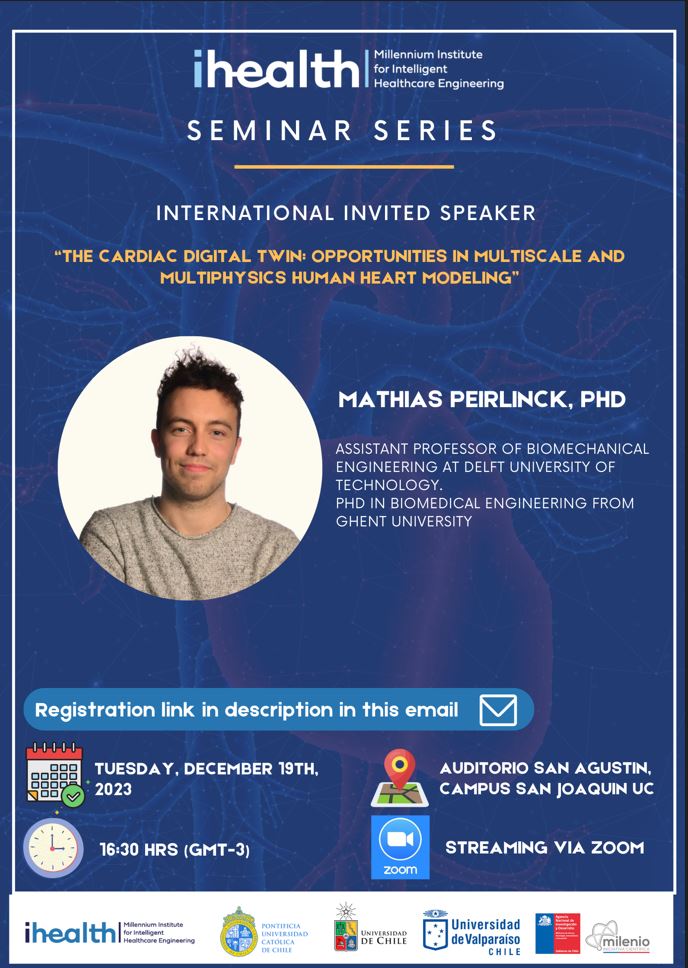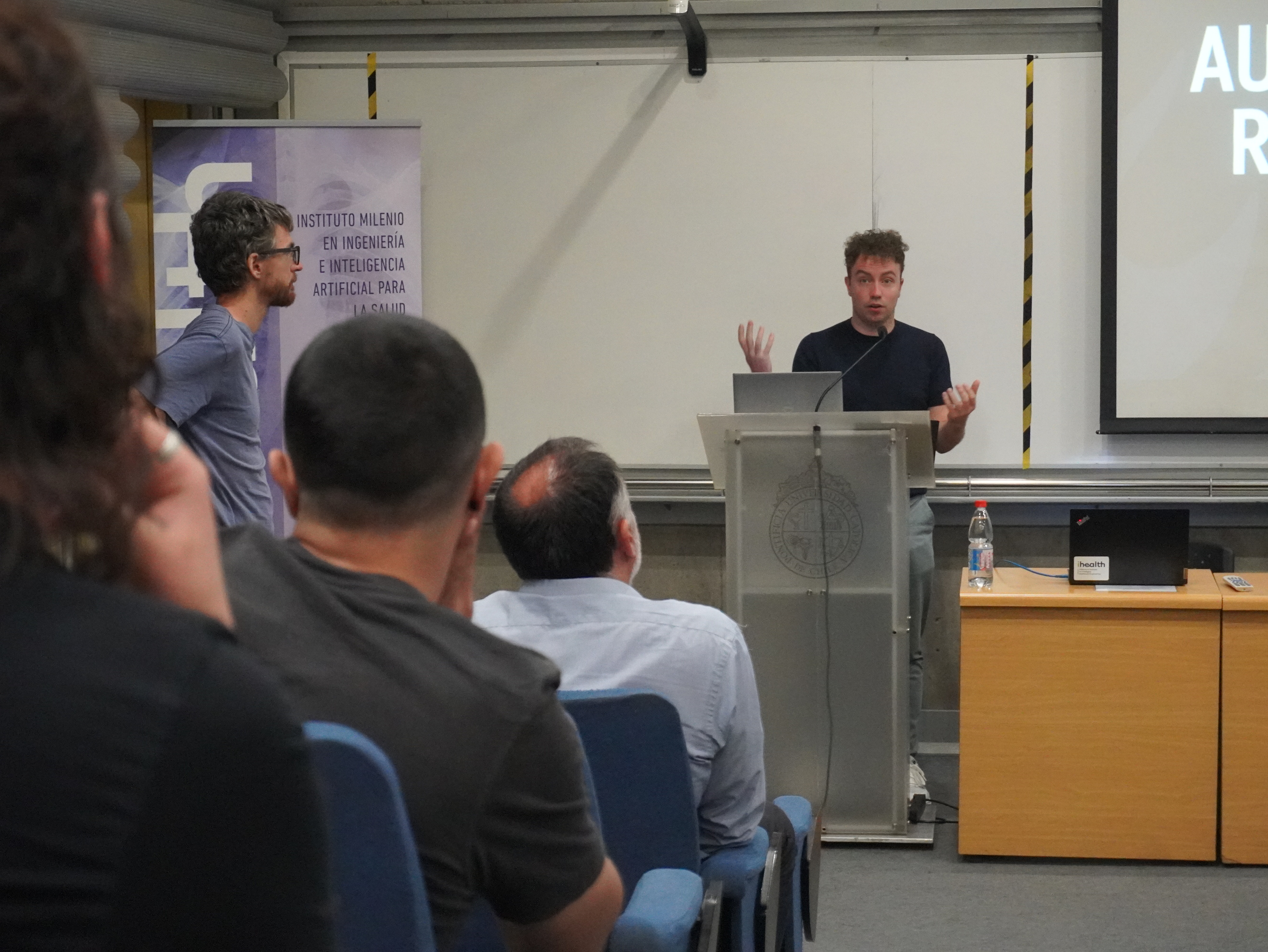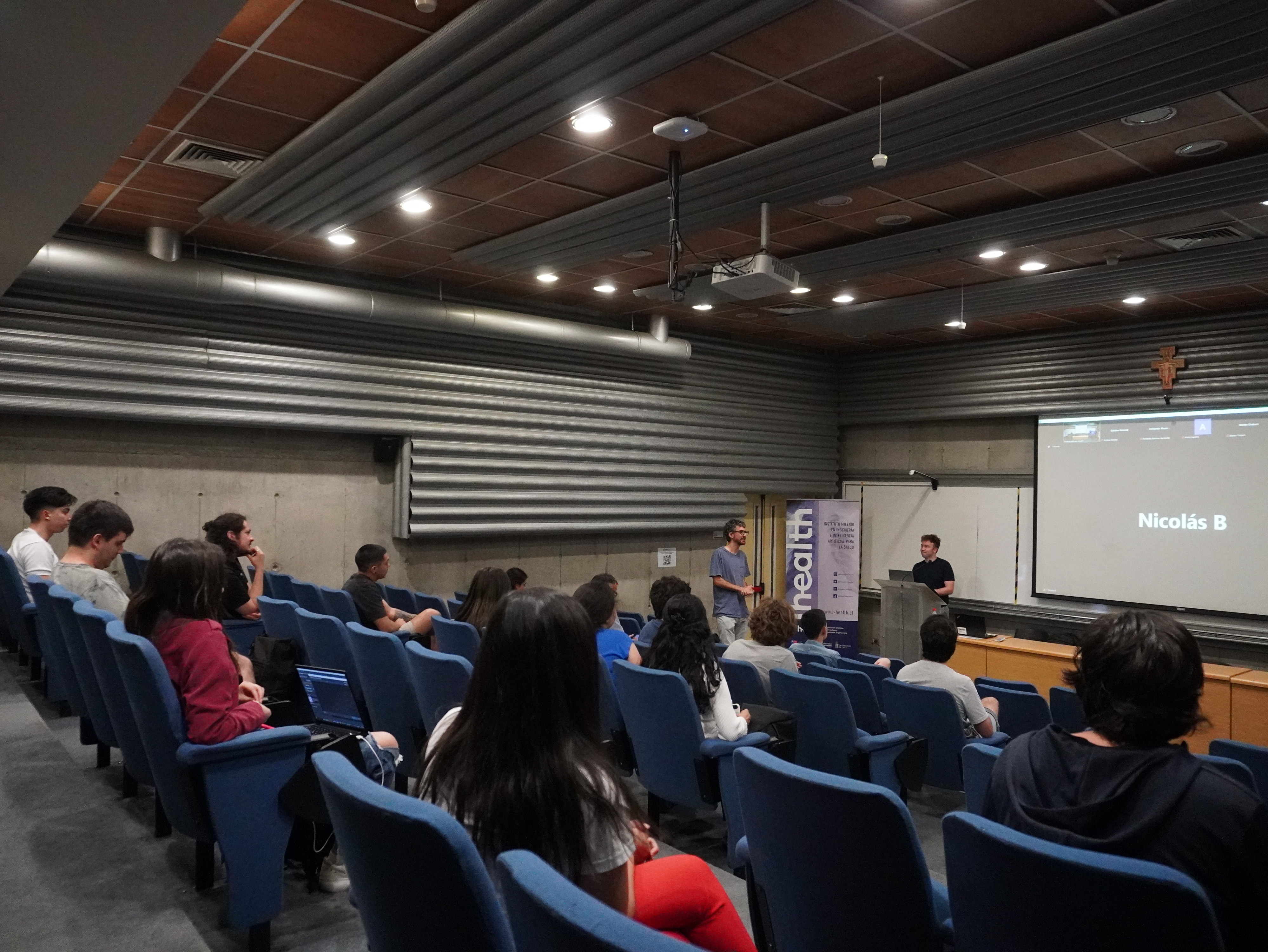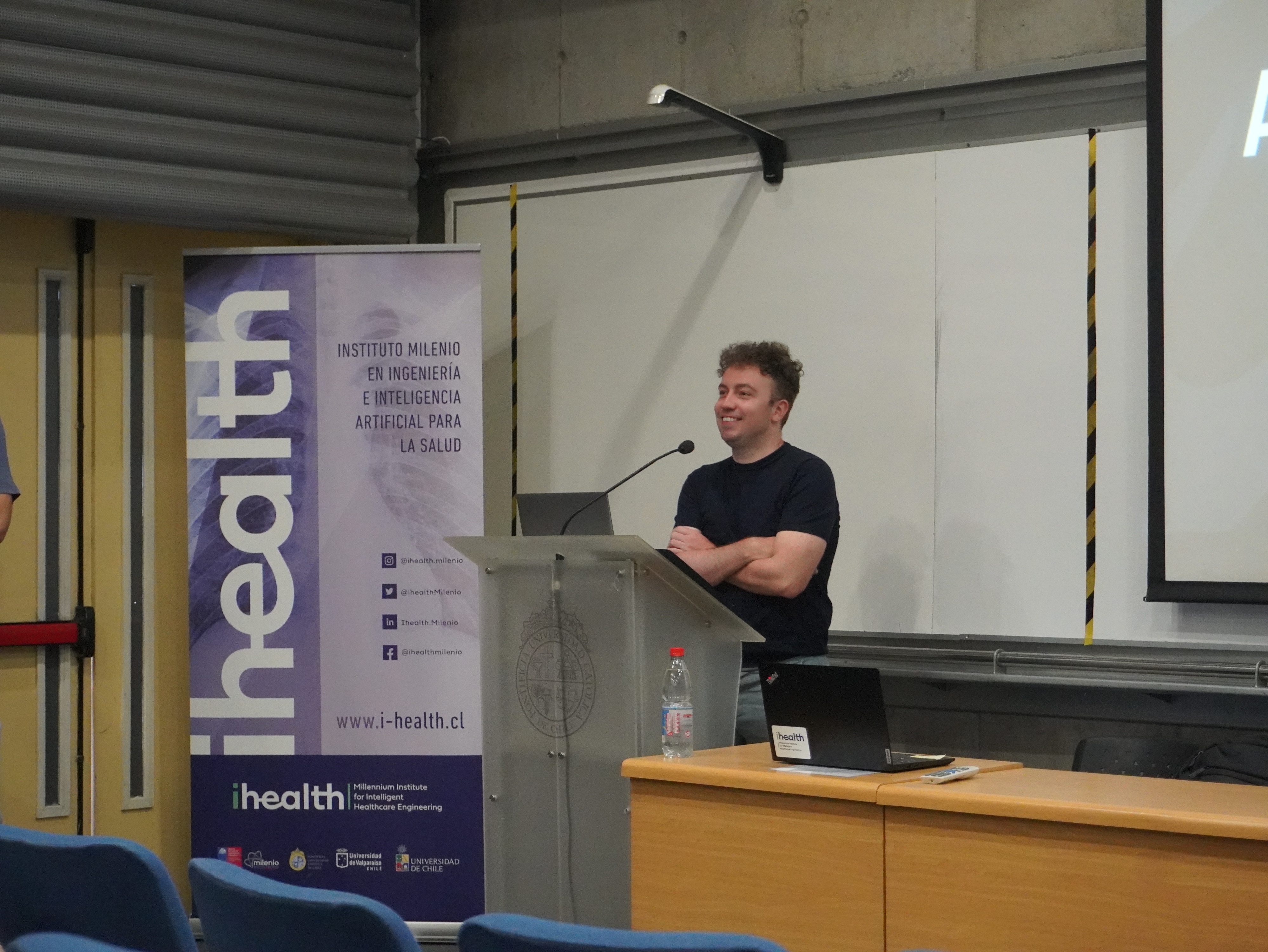Seminar December 19TH, 2023

Hours: 16:30
MATHIAS PEIRLINCK, PhD.
TITLE: “The cardiac digital twin:opportunities in multiscale and multiphysics human heart modeling”
ABSTRACT: We have come to a point where human heart modeling can really start to benefit the patient, for improved diagnosis, prognosis, treatment planning, and medical device design. The development of multiscale patient-specific heart models equipped with realistic Purkinje networks provides accurate predictions of the heart’s electrophysiological behavior under both physiological and pathological conditions. Moreover, it allows us to characterize the effects of drugs in cardiac electrophysiology and develop novel population-specific in silico drug risk stratification. Similarly, we can now confidently and robustly model the physiology and mechanical behavior of the healthy beating human heart. Such a simulation tool provides inexhaustible opportunities to probe pathological conditions and guide device design and treatment planning in health and disease. We can now predict the long-term response of the heart to various forms of pressure and volume overloading and show that our predictions qualitatively match pathophysiological remodeling at the cell, tissue and organ scale. Additionally, we use these tools to simulate the consequences of myocardial infarction and compute how the non-contracting scar region leads to mitral regurgitation. The resulting diseased digital twin of the patient-specific heart forms an interesting in silico bench test to quantify the potential success of various treatment strategies. Particularly, we have used these models to optimize novel mitral annuloplasty rings, predict the coaptation of the mitral valve following edge-to-edge repair, quantify the mechanical loads on pacing leads and the effects of left ventricular assist devices on myocardial dynamics. With a view toward translational medicine, our models also provide a clinical perspective on virtual imaging trials and a regulatory perspective on medical device innovation.
BIO: Mathias Peirlinck is an Assistant Professor of BioMechanical Engineering at Delft University of Technology, the oldest and largest technical university in the Netherlands which is ranked among the top engineering and technology universities in the world. Prior to joining TU Delft, he received his PhD in Biomedical Engineering from Ghent University in 2019 and performed a postdoctoral research fellowship at Stanford University’s department of Mechanical Engineering from 2019 till 2021. His research focuses on the integration of multimodal experimental data, physics-based modeling, and machine learning techniques to understand, explore, and predict the multiscale behaviour of the human heart, both in health and disease. Mathias received the Marie Sklodowska-Curie Seal of Excellence in 2019, won the AIG Price for best quadrennial PhD at Ghent University’s
Faculty of Engineering from 2018 till 2022, and received the prestigious Dutch Science Foundation Veni Talent Award for his research on data-driven and physics-based modeling of multiscale cardiac tissue behavior in 2023. Mathias co-leads various national and international research consortia, including amongst others the Holland Hybrid Heart consortium, aimed at the development of a soft implantable robotic heart for people with severe heart failure, and VITAL, a Horizon Europe consortium focused on the advancement of multi-organ digital twins towards the improvement of cardiovascular clinical care.



